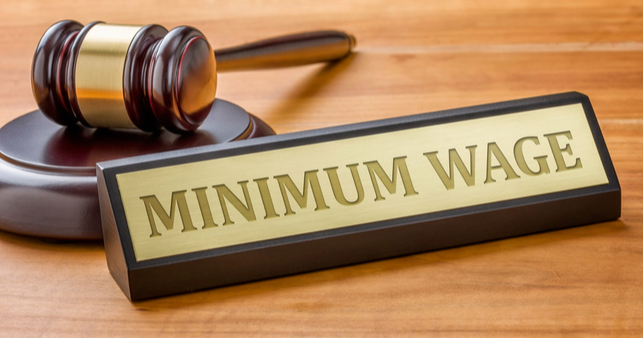
If your business needs a helping hand and hiring a full-timer is too much of a commitment, it may be time to add a part-time or casual employee to your roster. Before you settle on one of these staffing solutions, it’s best to understand the key differences and the advantages and disadvantages that come with hiring casual vs part-time employees.
The basic differences
Casual employees
Casual employees work on an as-needed basis. Employing casuals can help businesses meet staffing needs throughout peak periods and with large one-off projects.
Casual employees are given no advance commitment from an employer on the number of hours and work patterns they will receive, and their services can be terminated without notice.
Part-time employees
Part-time employees work less than 30 hours per week and are normally hired on a permanent basis. Sometimes part-time workers are employed on a fixed-term contract.
While casual employees have irregular hours, part-time staff will often have set hours, days and work patterns that apply each week.
Which industries hire casual and part-time employees?
Any kind of role in any kind of industry can be performed on a part-time or casual basis. Although there are certain industries which favour the flexibility of casual employment arrangements.
The two main industries are:
Retail
Hospitality
Small to medium-sized businesses regularly rely on a casual employment workforce.
Examples of casual and part-time jobs
Any job that requires less than full-time hours may be offered as a casual or part-time role. Some of the most common part-time and casual roles include:
Waiter/waitress
Bartender
Barista
Receptionist
Retail assistant
Nurse
Differences in hours
A part-time worker is someone with all the rights and responsibilities of a permanent employee. If they change from part time to full time employment, the only difference is the number of hours you pay them. They too are entitled to four weeks annual leave.
Part-time employees agree to a set number of hours when signing their employment agreement, meaning employers can only reduce or increase these hours by mutual agreement.
Casual employees are given no advance commitment about the number of hours they will receive. A casual employee’s work patterns are also irregular, with their weekly schedule changing depending on the employer’s needs. The casual can then either accept, refuse, or swap shifts.
The maximum number of hours per week a casual employee can work is 40, although they can potentially work more if the schedule is deemed reasonable. From 1 April 2024 the adult minimum wage was increased from $22.70 to $23.15 per hour.
Differences in leave entitlements
Part-time employees are entitled to the same benefits as full time employees such as paid annual leave, paid sick leave, paid personal leave, and paid carer’s leave calculated on a pro-rata basis.
Casual employees have largely the same rights and responsibilities as permanent employees.
Because casual employees don’t have set hours, it may be not practical for them to take annual holidays. The employee and employer can agree that an extra 8% will be paid on top of their wages or salary instead of taking annual holidays.
Casual employees are also entitled to sick leave and bereavement leave after 6 months of starting work if during that time they have worked:
An average of at least 10 hours a week, and
At least one hour a week or 40 hours a month.
The advantages and disadvantages of a casual employee
Hiring casuals gives employers greater flexibility, allowing them to increase or decrease staffing levels on a needs-basis. In a business where the demand for their product or service fluctuates, hiring casuals can be a practical solution.
If the employer no longer needs their services, terminating a casual employee requires no notice or redundancy pay.
The biggest disadvantage with hiring casuals is a casual worker can take as much unpaid leave as they like, whenever they like. Similarly, there is no guarantee a casual will choose to work the shifts offered by an employer.
The advantages and disadvantages of a part-time employee
Hiring part-time employees gives employers long-term solutions to their staffing needs, with fixed hours and work patterns. However, if the business’s needs change, the number of hours a part-time employee works can only be adjusted by mutual consent.
Part-time employees will need to be paid all their leave entitlements, while any additional benefits they receive will also need to be financed.
Should you hire a casual or part-time employee?
When it comes to deciding whether to hire a part-time or casual employee, there is no right or wrong. Which of these arrangements works best for you will depend on the nature of your business.
Remember – if you hire a casual employee but your needs increase, there’s nothing to stop you from offering them a part-time contract. Similarly, a part-time contract can always be upscaled to full-time if business is booming.
If you carefully assess all your staffing options, you can build a flexible workforce that caters perfectly to the needs of your business.
How can Employsure help?
Employsure has helped to build thousands of New Zealand businesses. If you need trustworthy workplace relations or health and safety advice, our FREE 24/7 Advice Line is available. Call 0800 675 700 today to get all your questions answered.
Please note this article is intended to offer general information only. Before adjusting your hiring policies, practices, or procedures, be sure to seek advice from a professional Human Resources expert.


